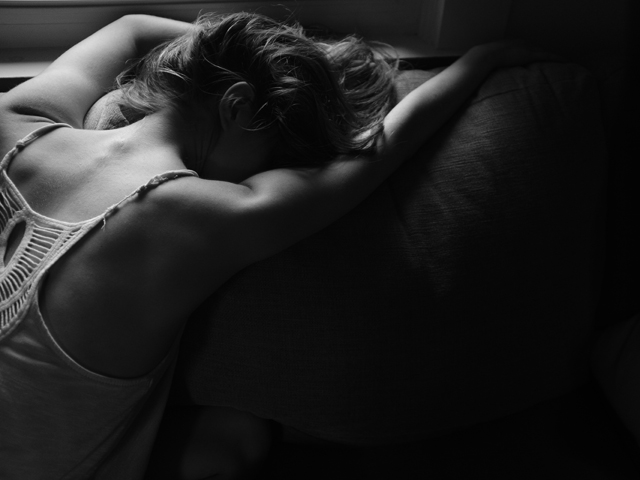Dr Elizabeth Howard National Pain Week Interview

The Emotional Toll of Chronic Pain
Whilst invisible, pain is very real for the 6.9 million Australians living with musculoskeletal conditions. Whilst debilitating, the reality is that without pain management, a third (34%) of Australians who suffer from chronic pain, will develop mental health conditions.
Musculoskeletal pain is the leading cause of disability for a third (28%) of Australians which leads to a feeling comparable to burning or tingling, leaving those living with pain unable to work, sleep or even walk.
Osteopath and Pain Educator, Dr Elizabeth Howard talks about the impacts of pain on the whole body.
"Pain is one of our internal 'protective' signals that we may be in danger. When we feel pain in our muscles, joints or connective tissues, it can be either from actual or even from potential damage that our body is warning us about.
"Musculoskeletal pain can really restrict a person's life and their ability to function to their desired potential. While people love to be social and get together to walk, play sport or go to the park, if we are restricted by pain, it can really affect our social lives, and then inevitably, our mental health," Dr Howard says.
As 30%–40% of people with chronic pain report major depression, the uncertainty of a full recovery results in feelings of despair and defeat. This creates a vicious cycle between our physical and mental wellbeing.
"Pain can influence declines in mood and personal wellbeing, creates feelings of fear, anxiety, stress and worry. Sometimes you need to take a look at the whole body and understand the person's environment to formulate a recovery plan," Dr Howard said.
Osteopathy considers the pain and the person together to provide a personal therapy, focusing not only on the pain, but also what is going on around it.
"As osteopaths, our task is to look for the main contributors to your pain, and provide education, manual therapy and a management plan that is focused on how you can reduce your pain and prevent re-occurrence," says Dr Howard.
During National Pain Week (July 22 – 28), Osteopathy Australia is encouraging those struggling with pain to learn more about musculoskeletal health by visiting an osteopath. For further information consult your GP and visit www.osteopathy.org.au.
Interview with Dr Elizabeth Howard
Dr Elizabeth Howard is a Sydney based Pain Educator and Osteopath. Elizabeth is an osteopath with over 20 years' experience in the treatment and management of acute and chronic pain. She has a focus in holistic pain education, pelvic pain and pregnancy-related pain.
Question: Are you surprised that 6.9 million Australians are affected by musculoskeletal pain?
Dr Elizabeth Howard: It is a large number, but not all that surprising because the musculoskeletal system is one of the largest systems in the human body, and we use it every day. It keeps us moving and it can become a problem if we don't move enough, as can be the case with many young people studying, working at a desk job or as we get older we tend to move less. When this system is not working efficiently, it can be a great burden on a person's life.
Question: Other than the physical pain, how are Australians affected by this pain?
Dr Elizabeth Howard: Physical pain can really limit what we can do in our lives, and the leading cause of disability for 28% of us is musculoskeletal pain. It can restrict us playing sport, catching up with friends for a walk, meal or coffee. This can be socially isolating and place strain on our mental health, and in fact one third of Australians who suffer from ongoing pain will develop mental health conditions.
Question: How do you create pain management plans for some of these Australians?
Dr Elizabeth Howard: First of all I ask what are two activities or things that they have difficulty doing or can no longer do because of their pain and would really love to do again. From here we focus on how we are going to formulate the steps to achieving those goals. This may include improving sleep habits, eating healthier, home exercises or stretches, well as manual therapy to the musculoskeletal system to help get them moving again.
Question: How can we work towards avoiding pain?
Dr Elizabeth Howard: Staying active is really the best way to avoid pain. Humans are designed to move and our body feels great when we can do this, as well improving our mental fitness at the same time.
Question: How will learning more about musculoskeletal health help those living with pain?
Dr Elizabeth Howard: Understanding pain is really the key to starting your recovery. We know so much more about the nervous system and how it integrates with the musculoskeletal system, and by updating your own knowledge you can take control back, remove the fear and start your recovery with confidence.
Question: What inspired your focus on holistic pain education?
Dr Elizabeth Howard: The fact that everyone's pain is individual, and is affected by MANY factors in a person's life means that we need to provide them with the tools to help themselves recover. Osteopathy is about supporting them in this journey, and helping out with the 'tissue issues' of the musculoskeletal system.
Question: What message do you hope to spread for National Pain Week?
Dr Elizabeth Howard: If you can understand why you are hurting, then you are well on your way to recovery. Knowledge is power! Osteopathy considers the pain and the person together to provide a personal therapy, focusing not only on the pain, but also what is going on around it. I encourage those struggling with pain to learn more about their musculoskeletal health by visiting an osteopath, consulting with their GP or visiting www.osteopathy.org.au
Interview by Brooke Hunter
Photo by Alex Boyd on Unsplash
MORE



